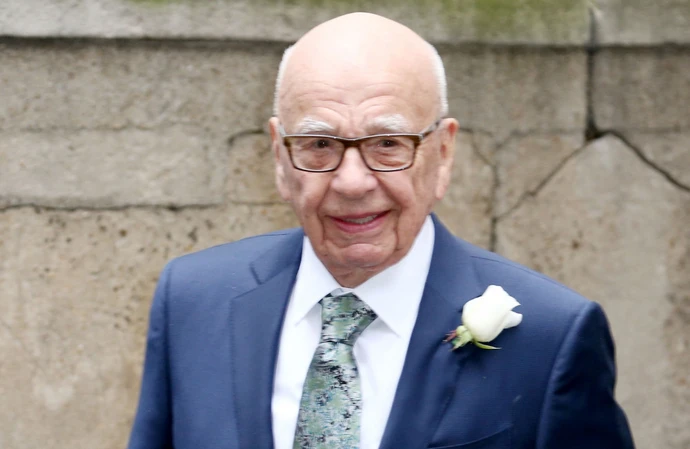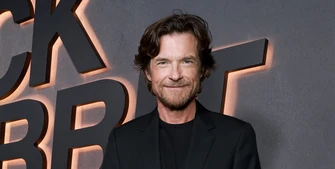The real-life Succession: Rupert Murdoch’s empire, his heirs and the fight that changed global media
As The Australian hails Succession as the greatest drama of the century, Rupert Murdoch’s own saga — from tabloid revolution to Fox News and the China gamble — proves truth really can be stranger than fiction.

Rupert Murdoch: The outsider who became the world’s most powerful insider
Just weeks ago, The Australian — flagship paper of Rupert Murdoch’s own empire — boldly declared Succession the best TV drama of the past 25 years. The verdict from inside his own media stable was striking: the hit HBO series, long viewed as a thinly veiled portrayal of the Murdoch dynasty, had been crowned the ultimate story about power, legacy and family warfare.
It was an irony that Murdoch himself could probably appreciate. The fictional saga of the Roys — a family locked in a perpetual struggle for control of a media empire — has mirrored his life so closely that even insiders at News Corp joked the show’s writers must have had a mole in the boardroom. But the real story behind the world’s most formidable media mogul is even more extraordinary.
The outsider who built an empire
Rupert Murdoch has always cast himself as the rebel in the room — the defiant outsider taking on the establishment. Yet few men have done more to shape that establishment than he has. From a single newspaper in Adelaide to a media empire spanning three continents, Murdoch’s journey is the story of how one man’s relentless ambition redrew the boundaries between politics, press and power.
Born in 1931, Keith Rupert Murdoch inherited a modest Australian newspaper business at 21 after his father’s death. Within a decade, he had turned it into a political weapon. He bought titles that could reach the working man, laced them with scandal and celebrity, and gave them an unmistakable voice — brash, emotional and combative. Rivals saw sensationalism; Murdoch saw connection.
By the time he arrived in Britain in the late 1960s, Murdoch’s style was already fully formed. He acquired News of the World and The Sun, injected them with sex and sport, and declared war on the British press elite. “I was never part of their club,” he once said — though soon, the club would bend to him.
The man who built modern tabloid culture
What made Murdoch different was not just his appetite for expansion, but his instinct for what people wanted before they did. He backed headlines that provoked outrage and laughter in equal measure. To traditionalists, he debased journalism; to readers, he brought it to life.
By the 1980s, Murdoch’s tabloids weren’t just reporting the culture — they were creating it. His British titles became fixtures in daily life, influencing elections and dividing opinion. He championed Margaret Thatcher, whose politics of individualism matched his own. When The Sun claimed credit for the Conservatives’ 1992 victory with the headline “It’s The Sun Wot Won It,” it wasn’t entirely a joke.
He built a global playbook: enter a market, find the emotional nerve, and never apologise for popularity. From London to New York, Murdoch’s formula turned newspapers into engines of political power. The purchase of the New York Post, followed by The Times, Sunday Times and Wall Street Journal, made him not just an international publisher but a political force capable of moving markets — and governments.
From print to pixels: the empire expands
The 1990s brought Murdoch’s next frontier: television. The launch of Fox News in 1996 marked the start of a revolution in cable broadcasting. It wasn’t subtle, and it wasn’t meant to be. The channel’s mix of patriotism, outrage and entertainment helped shape American conservatism for a generation.
As Vox put it in a 2025 retrospective: “The scion of a newspaper baron in Australia, Murdoch built a media empire. It changed the way reality works.”
To his critics, Fox News blurred the line between fact and fiction; to supporters, it offered a counterweight to liberal media. Murdoch didn’t invent political polarisation, but he understood how to monetise it. His outlets turned cultural identity into a product and outrage into ratings.
Even as print papers declined, his television holdings thrived. Sky Television in Britain pioneered subscription models and 24-hour news. Fox became America’s most profitable cable network. By the time streaming and social media began to disrupt traditional media, Murdoch had already built an empire so vast it could absorb the blows.
The China dream
The one market Murdoch couldn’t conquer was China. In 1993 he bought a controlling stake in Star TV, a Hong Kong-based satellite broadcaster reaching hundreds of millions of Chinese viewers. He saw it as the gateway to the biggest audience on Earth — a chance to bring Western entertainment and advertising to a booming economy.
But his optimism collided with political reality. When Murdoch described satellite TV as a tool that could “make the world a single marketplace of ideas,” Chinese officials recoiled. Within a year, the government blocked Star’s signals, denouncing Western media as a threat to social stability.
Murdoch back-tracked, calling his remarks “naïve,” and began an extraordinary charm offensive. He courted senior Party figures, dropped the BBC from Star TV at Beijing’s request, and even pulled a HarperCollins memoir by former Hong Kong governor Chris Patten — a fierce critic of China — to avoid offence. His company instead published a book praising President Jiang Zemin.
It was a masterclass in pragmatism — or capitulation, depending on who you asked.
Wendi Deng: the bridge to Beijing
Murdoch’s third marriage in 1999 seemed to symbolise a new phase of his China strategy. His bride, Wendi Deng, was born in Jiangsu province, educated in the US, and had worked at Star TV. Smart, ambitious and well-connected, she embodied exactly what Murdoch needed: someone who could operate in both worlds.
He believed she could serve as his ambassador to Beijing — smoothing introductions, interpreting cultural nuance, and restoring his reputation with officials. “With Wendi’s help,” he reportedly told colleagues, “we can finally make it work.”
For a while, she appeared to succeed. Deng accompanied him on visits to Beijing, hosted ministers, and helped forge relationships with elite families. Western business circles saw her as his secret weapon. But Chinese authorities remained wary. They liked Wendi, but they didn’t need Murdoch.
By the mid-2000s, the dream was fading. China’s own state broadcasters had eclipsed Star TV, and government censors showed no sign of loosening control. In 2009 Murdoch sold Star’s mainland operations, effectively conceding defeat. When the couple divorced in 2013, it marked the quiet end of his China adventure.
As one former News Corp executive told the Financial Times: “Rupert thought he’d married his way into China. But China was never for sale.”
The self-made myth of the ‘elite outsider’
Murdoch has always portrayed himself as a populist insurgent, but as academic Michael Ricketson argues in Rupert Murdoch: Elite Outsider (2025), the myth conceals how fully he became part of the power structure he once defied.
“Murdoch styled himself as a populist insurgent while operating within — and ultimately reshaping — elite power networks,” Ricketson writes. The paradox defines his legacy: he railed against elites while becoming their most influential member.
His newspapers spoke to the disenchanted, yet his boardrooms were filled with world leaders seeking his favour. He convinced millions that he was on their side, even as he helped shape the institutions they distrusted.
The cost of control
For all his success, Murdoch’s empire has been built on conflict — with unions, governments, rivals, and sometimes his own family. The industrial war at Wapping in the 1980s broke the print unions and changed British journalism forever, but cemented his reputation for ruthless determination.
Scandals followed triumphs. The 2011 phone-hacking revelations forced the closure of News of the World and punctured his aura of invincibility. He told Parliament he was humbled, but survival was what he did best. He regrouped, reorganised, and re-emerged stronger.
Family turmoil became its own saga. The succession fight between his children — Lachlan, James, Elisabeth and Prudence — mirrored Succession so closely that even insiders laughed. When the legal dust settled in 2025, Lachlan emerged in control, ensuring that his father’s ideological course would continue.
The world he made
Murdoch’s outlets defined the tone of modern politics: direct, emotional, and tribal. The rise of populism owes much to the world he built — one where identity and narrative often outweigh fact. As Vox observed, “He didn’t just reflect the public mood — he engineered it.”
From Downing Street to the White House, his influence was unrivalled. Leaders sought his endorsement and feared his wrath. He backed Blair, then Cameron, then Brexit. In America, he alternated between supporting and scorning Donald Trump, depending on which served him best.
Ricketson notes that Murdoch’s outsider persona gave him moral flexibility: “He could always claim to be fighting power, even when he exercised it.” That illusion of insurgency remains central to his empire’s appeal.
Legacy of a media colossus
At 94, Murdoch remains active, though Lachlan now runs the show. His holdings — Fox Corp, News Corp, The Times, The Sun, The Wall Street Journal — still set agendas and move markets.
His legacy is contradictory. He gave a voice to millions who felt unheard, yet critics say he deepened divisions and eroded trust in journalism. He turned news into theatre, but also revolutionised media economics, embracing digital subscriptions years ahead of his peers.
The great irony is that the “outsider” who vowed never to join the club became its ultimate insider — courted by prime ministers, feared by rivals, and analysed by academics.
The final act
History will likely remember Rupert Murdoch not just as a press baron but as an architect of the modern information age — brilliant, flawed and unrelenting. The man who once fought the establishment ended up defining it. Yet even now, that outsider’s fire still burns.
As Tandfonline’s Ricketson concludes: “Murdoch never stopped campaigning — not for office, but for influence. The struggle itself became his purpose.”
And so it remains: Rupert Murdoch, the eternal insurgent, still fighting the world he built.







